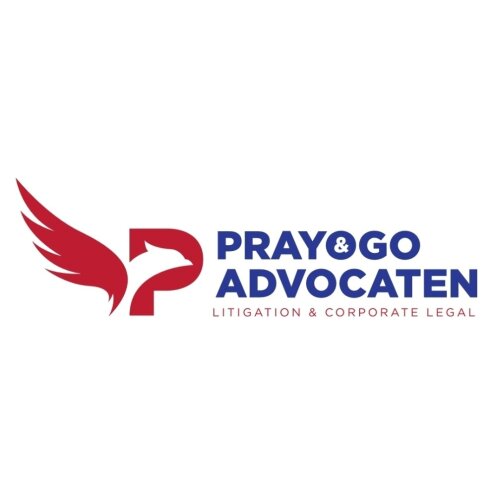Best Patent Lawyers in Indonesia
Share your needs with us, get contacted by law firms.
Free. Takes 2 min.
Or refine your search by selecting a city:
List of the best lawyers in Indonesia
About Patent Law in Indonesia
Patent law in Indonesia is governed by the Patent Law No. 13 of 2016. A patent in Indonesia provides the inventor or patent holder exclusive rights to exploit their invention for a certain period. This can include both product and process inventions. A patent must meet certain criteria, including novelty, inventive steps, and industrial applicability. In Indonesia, patents are classified into standard patents, known as "invensi" which last for 20 years, and simple patents, known as "patent sederhana," which last for 10 years.
Why You May Need a Lawyer
There are several situations where legal expertise is beneficial or necessary when dealing with patents in Indonesia:
- Patent Application: The application process can be complex, requiring technical and legal knowledge to ensure proper documentation and adherence to Indonesian requirements.
- Patent Infringement: If you believe your patent is being infringed upon, legal assistance is crucial to enforce your rights and possibly seek damages.
- Patent Disputes: These can arise between parties regarding issues of patent ownership, validity, or infringement, where a lawyer can help mediate or litigate as needed.
- Licensing and Sale: Legal advice can assist in drafting and negotiating licensing or sale agreements for your patent to ensure your interests are protected.
- Patent Portfolio Management: For businesses managing multiple patents, understanding how to optimize and protect your intellectual property can be aided by specialized legal counsel.
Local Laws Overview
Several key aspects of local laws are particularly relevant to patents in Indonesia:
- Indonesia has a "first to file" system, meaning that the first person to file a patent application holds the patent rights.
- The Patent Law provides rights for patent owners including manufacturing, selling, and importing the patented product or process.
- Compulsory licenses can be issued if the patent is not worked or exploited in Indonesia within a set period without valid reason.
- Patent law accommodates exceptions and limitations to patent rights, especially for educational and research purposes under certain conditions.
- There are specific regulations for biotechnology and pharmaceutical patents, which may require additional scrutiny and guidelines.
Frequently Asked Questions
What is the difference between a standard patent and a simple patent?
A standard patent ("invensi") is granted for a new and inventive product or process and is valid for 20 years. A simple patent ("patent sederhana") is typically for an innovative product that is less complex and is valid for 10 years.
Who can apply for a patent in Indonesia?
Both Indonesian citizens and non-citizens can apply for a patent in Indonesia. Foreign applicants must apply through an Indonesian legal entity or patent consultant.
How long does it take to get a patent granted in Indonesia?
The process can take several years due to various stages including examination, publication, and possible opposition. On average, it takes 2 to 5 years.
What does "first to file" mean?
"First to file" means that the rights to a patent are granted to the first person who files a patent application, regardless of the date of invention.
Can I file a patent application for software in Indonesia?
Software inventions may be patentable provided they offer a technical solution to a technical problem, though this is subject to certain criteria and interpretations.
How do I enforce my patent rights in Indonesia?
If your patent rights are infringed, you may pursue civil litigation, complaint to relevant authorities, or seek settlement through mediation or arbitration.
Is it possible to extend the validity of a patent in Indonesia?
No, patent validity periods are fixed and cannot be extended beyond their 20-year or 10-year terms.
Are patent documents published for public access?
Yes, patent documents are published by the Indonesian Directorate General of Intellectual Property (DGIP) after 18 months from the filing date or priority date.
What happens if I do not pay the annual fees for a patent?
If annual fees are not paid, the patent will lapse and rights associated with it will be lost.
Can a patent application be withdrawn?
Yes, an applicant may withdraw their patent application at any time before it is granted.
Additional Resources
For more information and assistance with patents in Indonesia, consider reaching out to:
- Directorate General of Intellectual Property (DGIP) - the governmental body governing patents in Indonesia.
- The Indonesian Patent Office and DGIP's official website, where detailed guidelines and forms can be found.
- Local Intellectual Property Consultants and Lawyers specialized in patent law for personalized legal guidance.
- Chambers of Commerce or industry organizations, which often have resources or can direct you to legal advice.
Next Steps
If you need legal assistance with patents in Indonesia, consider the following steps:
- Identify your specific needs, whether it's filing, protection, or enforcement of a patent.
- Consult with a legal expert or patent consultant to evaluate your situation and provide guidance.
- Prepare all necessary documents and data related to your invention or patent issue.
- Engage with the relevant Indonesian authorities or legal representatives to proceed with your application or dispute resolution.
Lawzana helps you find the best lawyers and law firms in Indonesia through a curated and pre-screened list of qualified legal professionals. Our platform offers rankings and detailed profiles of attorneys and law firms, allowing you to compare based on practice areas, including Patent, experience, and client feedback.
Each profile includes a description of the firm's areas of practice, client reviews, team members and partners, year of establishment, spoken languages, office locations, contact information, social media presence, and any published articles or resources. Most firms on our platform speak English and are experienced in both local and international legal matters.
Get a quote from top-rated law firms in Indonesia — quickly, securely, and without unnecessary hassle.
Disclaimer:
The information provided on this page is for general informational purposes only and does not constitute legal advice. While we strive to ensure the accuracy and relevance of the content, legal information may change over time, and interpretations of the law can vary. You should always consult with a qualified legal professional for advice specific to your situation.
We disclaim all liability for actions taken or not taken based on the content of this page. If you believe any information is incorrect or outdated, please contact us, and we will review and update it where appropriate.
Browse patent law firms by city in Indonesia
Refine your search by selecting a city.















